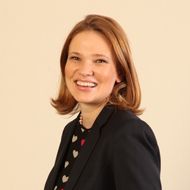HSE School of Communication Holds Classes in the Metaverse
.png)
This academic year, one of the courses of the HSE School of Communication will be taught entirely in the virtual space. A personal avatar of the teacher will help students through the process. The students will complete the course by implementing their own project in the metaverse.
‘Event Marketing in the Metaverse’ is a new course with no analogues in Russian universities. It presents accumulated knowledge about the types of metaverses, the features of various meta-sites, and the possibilities for brands to use the metaverse to achieve their goals.
Students will visit several metaverses, and a virtual guide in the form of a personal avatar will be waiting for them on each site. The avatar will tell them about the features of a particular universe, brand integrations, and the blockchain technologies they use.
One of the main advantages of immersion in the metaverse is the ability to unite users from all over the world on one platform. ‘We visualise, ie create avatars for experts, coaches, psychologists, bloggers,’ says Anna Grin, creator of the course, visiting lecturer at HSE University, founder and head of MAYAM Digital Fashion Studio. ‘During our events in the metaverse, you can approach and chat with the most unusual speakers, whom it might not be easy to meet in person. Our studio’s digital fashion shows are broadcast annually at fashion weeks in New York, London, Paris, Monaco, and Los Angeles.’
Anna Grin considers the opportunity to create an avatar that will create positive feelings to be an additional value of visiting metaverses. This is not news for the gaming industry, but metaverses have significantly updated the audience of virtual guests—today there are millions of new users of all ages.
‘Brands actively develop their presence in the metaverse,’ says Anna Grin. ‘There are all kinds of integrations, from fashion shows to educational projects. Businesses that enter a metaverse are clear winners (earning more or improving other planned indicators). Gamification is marketing of the 21st century. Classical advertising cannot be as involving as ads embedded in virtual reality.’
The final task for students mastering the discipline will be to hold their own event in the metaverse. For a real brand, they will create tactics, KPIs and a scenario, and after the event they will collect feedback from the participants.

Academic supervisor of the programme 'Advertising and Public Relations'
‘Teachers of the bachelor's programme “Advertising and Public Relations" are practicing communications industry specialists. They know and sense trends, sometimes predicting them. I am sure that students can expect an unusual course with deep immersion in new metaverses. Of course, this experience will be useful to them when applying for a job — it will help their CVs to stand out.’
Anyone with a personal computer and an internet connection can access metaverses. Today, all virtual platforms operate on a cross-platform principle—there is no need to download additional software or pay for access. It is also not necessary to buy expensive equipment or VR glasses. Education in the metaverse is a balance between play and study, which allows students to get the maximum benefit and joy from the process.

